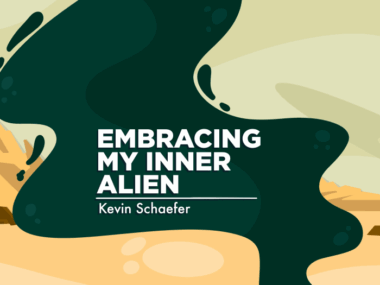In my world with SMA, I’m like Superman, ‘as human as anyone’
Too often, society labels Disabled people as symbols of pity or inspiration
Written by |

The new “Superman” movie features talking robots, giant monsters, interdimensional portals, and a crowd-pleasing, super-powered canine. Multiple heroes and villains factor into the story, and the action sequences involve a plethora of CGI-heavy special effects. It’s a big and fantastical summer blockbuster, the kind of spectacle that the superhero genre is known for.
Yet as much as I enjoyed these elements and seeing some of my favorite DC Comics characters on the big screen, what I really love about the movie is its emotional core. During a climactic scene, Superman (portrayed by David Corenswet) challenges a perception of him by his adversary, Lex Luthor (Nicholas Hoult), as an otherworldly being devoid of human attributes. He tells Luthor, “I’m as human as anyone. I love, I get scared. I wake up every morning, and despite not knowing what to do, I put one foot in front of the other and I try to make the best choices I can. I screw up all the time, but that is being human. And that’s my greatest strength.”
Sitting in the theater on opening night, I felt this monologue speak directly to me.
A few weeks earlier, I was in Anaheim, California, for the annual Cure SMA conference, happy and surrounded by thousands of people from my community. Days before that, I was flying to the conference, anxious about this mode of transportation because of past experiences I’ve had. A couple weeks before that, I’d felt shock and anguish after my boss called me on a Saturday afternoon to inform me that my friend and colleague Michael Morale had passed. Within a month, I’d experienced a gamut of emotions that I’m still processing.
This juxtaposition of highs and lows stuck with me during and after the conference. As much as I enjoyed seeing longtime friends and meeting new ones, introducing my niece and nephews to the “Star Wars” theme park at Disneyland, and eating out every night, other thoughts and memories entered my consciousness while I was there.
Particularly as I watched younger friends whom I’d met in recent years speak on panels and step into leadership positions, I felt a culmination of joy and grief. On one hand, it was exhilarating to see a new generation of advocates and leaders accept their roles with enthusiasm and dedication. Our SMA community is vibrant and bursting with talented individuals who strive to make the world more inclusive.
At the same time, the physical absence of many of our pioneers hit me. I felt their spirits, but a conference without Stevie, Melissa, Sandee, Kimberly, and so many others didn’t seem right. It’s surreal when you spend one year telling irreverent jokes on stage with someone, and a few months later, they’re gone.
While watching that scene in “Superman,” all of these emotions and thoughts flooded my mind. It permitted me to embrace my humanity as someone living with SMA. Too often, society tries to box Disabled people into two categories: symbols of pity, or symbols of perfection to inspire others. In both cases, these stereotypes strip us of the traits that make us human.
Every year, the conference solidifies how woefully inaccurate these stereotypes are. Living with SMA is messy and nonlinear. When our community comes together, we share each other’s highs and lows, frustrations, and everything in between.
Like Superman, an extraterrestrial who hails from another world, those of us with SMA have a genetic neuromuscular disability that makes us stick out. Still, our humanity remains front and center in everything we do.
We’re not entirely miserable or entirely optimistic. We have good days and bad days. We laugh, cry, love, dream, and grieve. We get anxious, scared, and hopeful, and we find creative ways to face obstacles. We’re as human and imperfect as anyone else, and that’s our greatest strength.
Note: SMA News Today is strictly a news and information website about the disease. It does not provide medical advice, diagnosis, or treatment. This content is not intended to be a substitute for professional medical advice, diagnosis, or treatment. Always seek the advice of your physician or other qualified health provider with any questions you may have regarding a medical condition. Never disregard professional medical advice or delay in seeking it because of something you have read on this website. The opinions expressed in this column are not those of SMA News Today or its parent company, Bionews, and are intended to spark discussion about issues pertaining to spinal muscular atrophy.




Leave a comment
Fill in the required fields to post. Your email address will not be published.